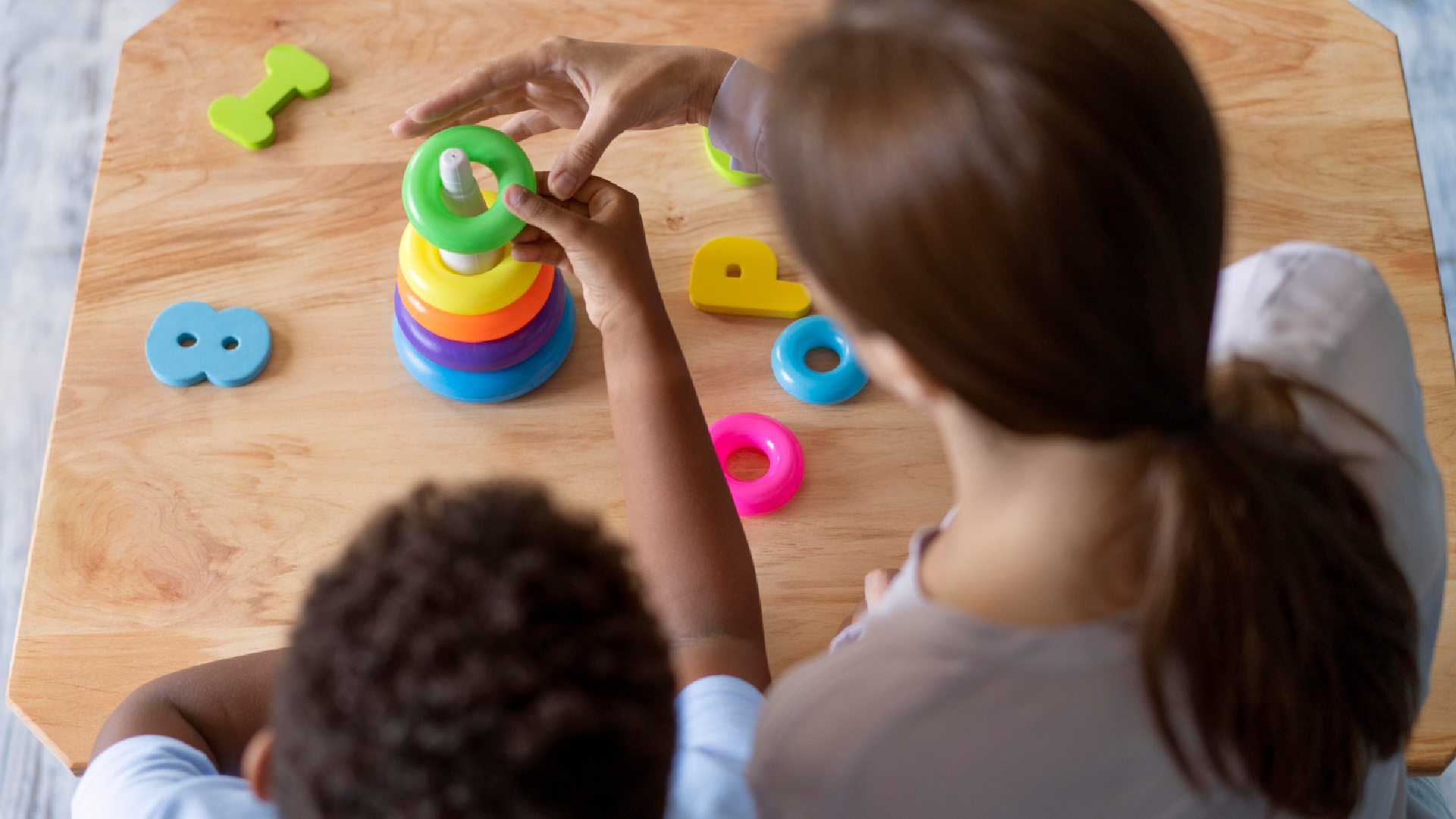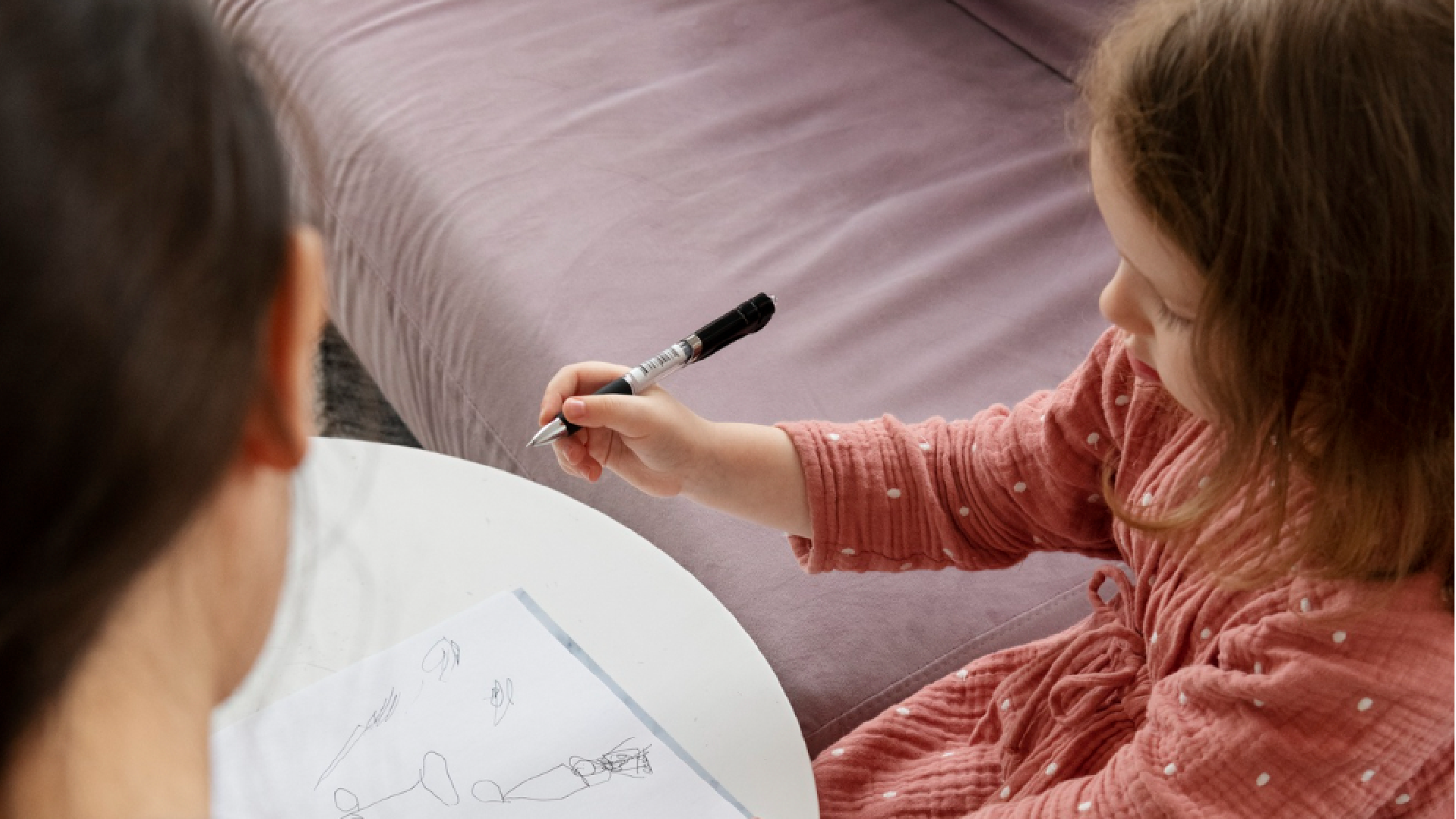Child Therapy helps children address emotional, behavioral, or psychological issues through a supportive and guided process.


What is Child Therapy
Many children experience emotional challenges during their developmental years.Some may engage in attention-seeking behaviors, while others may withdraw from social activities.
They often prefer safe spaces, like their room, where they engage in solo activities.
Therapy can help children make sense of overwhelming emotions and develop healthy coping mechanisms. Avoiding social activities or refusing to attend school
• Immersing themselves in solo activities like video games or browsing the internet
• Displaying attention-seeking behaviors to cope with emotions
• Developing strategies to handle stress and emotional difficulties

Does your child need therapy
Children often find it hard to express their emotions directly.If you notice signs that seem “off,” it may be an indicator that therapy could help.
Watch for behaviors like avoiding school, family activities, or social interactions.
Therapy can provide support to children struggling emotionally, socially, or academically.• Difficulty getting out of bed or attending school
• Struggling academically, emotionally, or socially
• Classroom outbursts or arguments, complaints about bullying
• Inability to engage in conversations or cope with traumatic events
• Choosing isolation over socializing with friends
What happens in therapy
Therapy can assist children and parents in addressing issues such as learning difficulties, ADHD, or low self-confidence.It can also help with internet addiction, poor student-teacher relationships, and underachievement.
Children engage in activities like play, art, and games to express emotions safely.
Therapy encourages self-reflection and helps children identify their strengths.• Addressing learning difficulties, ADHD, and underachievement
• Helping children express emotions through play, art, and games
• Building self-confidence by recognizing strengths
• Creating a judgment-free space for children to discuss their feelings
How therapy helps
If a child is struggling with ADHD-like symptoms, such as poor organization or trouble focusing, therapy can help.They are taught strategies to manage these symptoms and improve social skills.
Parents play an important role by working with the therapist and following up at home.
Recovery becomes a collaborative effort involving the child, parents, therapist, and teachers.• Developing strategies for managing ADHD-like symptoms
• Learning new social and organizational skills
• Parents meeting regularly with the therapist and supporting therapy at home
• Collaborative recovery process involving parents, child, therapist, and teachers
A note to all parents
Every child has a unique learning style, personality, and set of strengths or challenges.A child’s behavior is not a reflection of the parent or their parenting style.Therapy provides an accepting environment where children feel supported.
Parents can gain confidence in connecting with their children and involving family in their recovery.• Recognizing symptoms of anxiety, depression, or low self-esteem in children
• Strengthening parent-child communication
• Setting consistent and reasonable limits
• Using rewards and consequences effectively
• Helping children cope with major life transitions like parental conflict or divorce